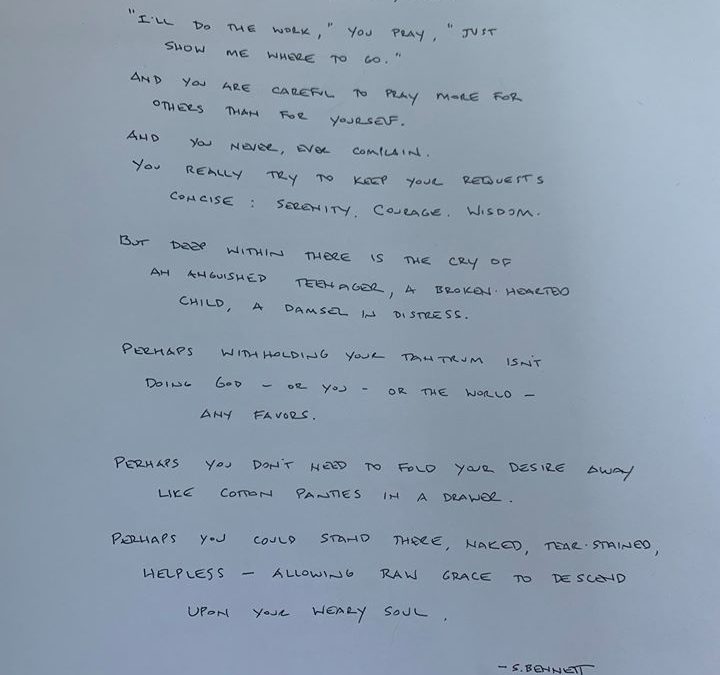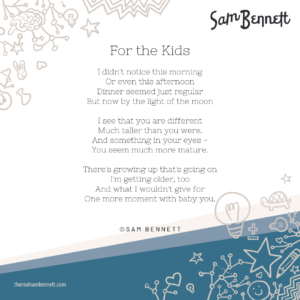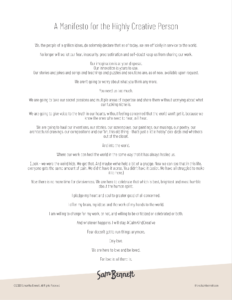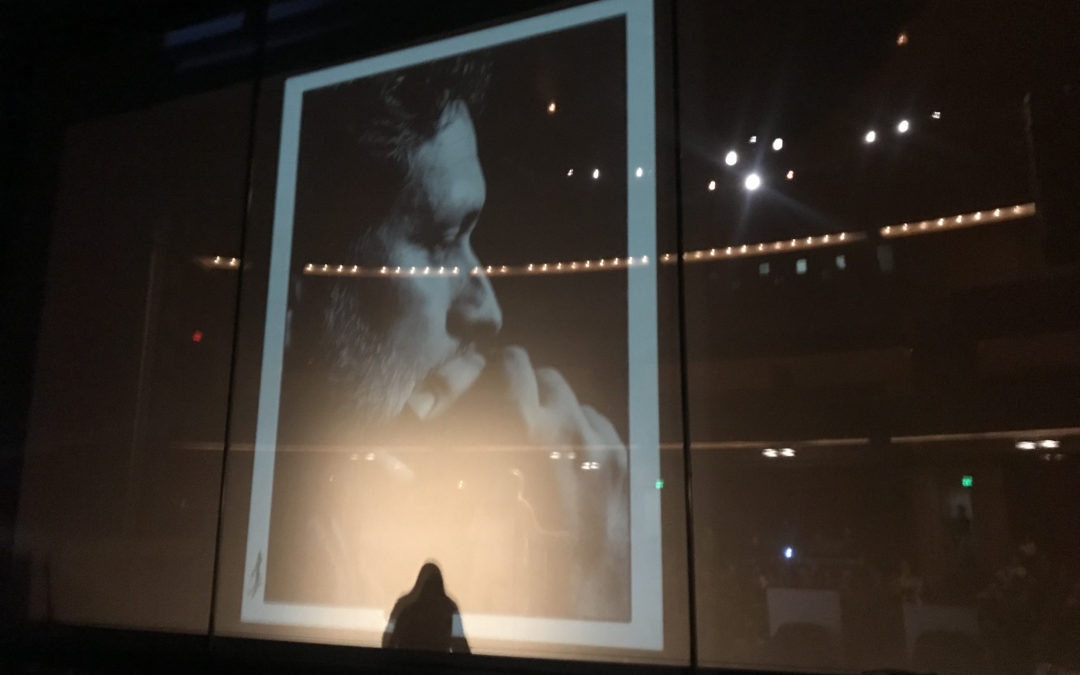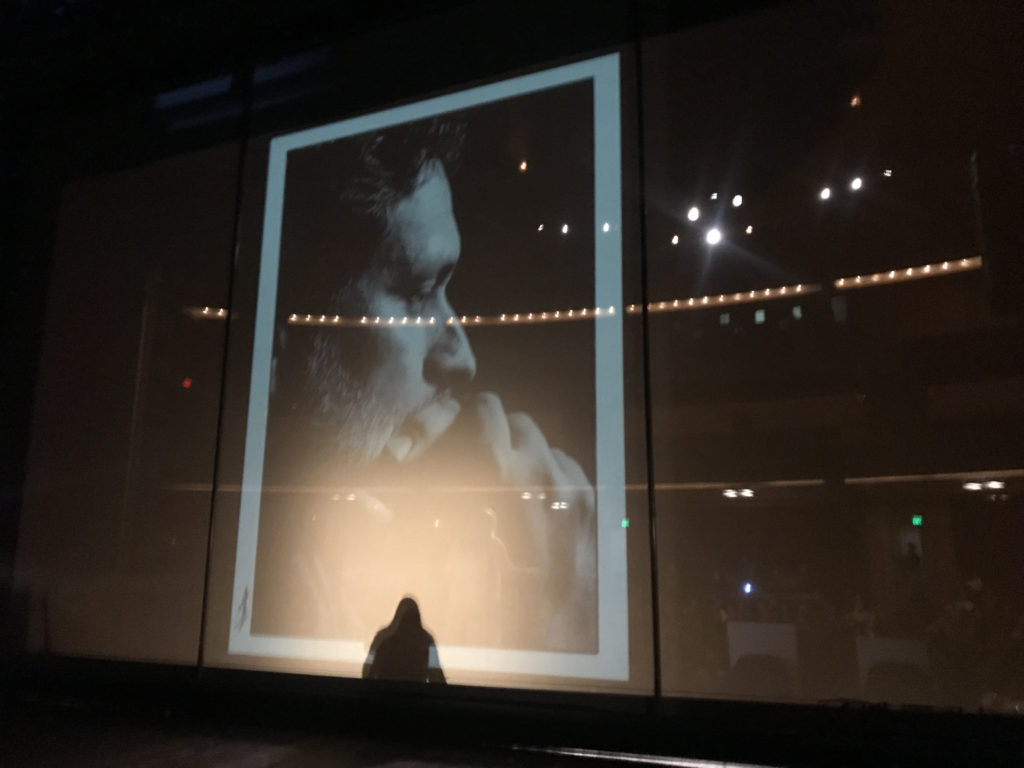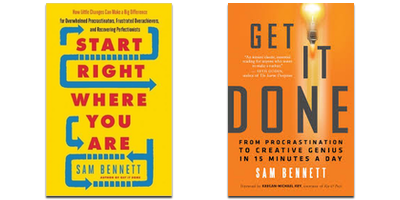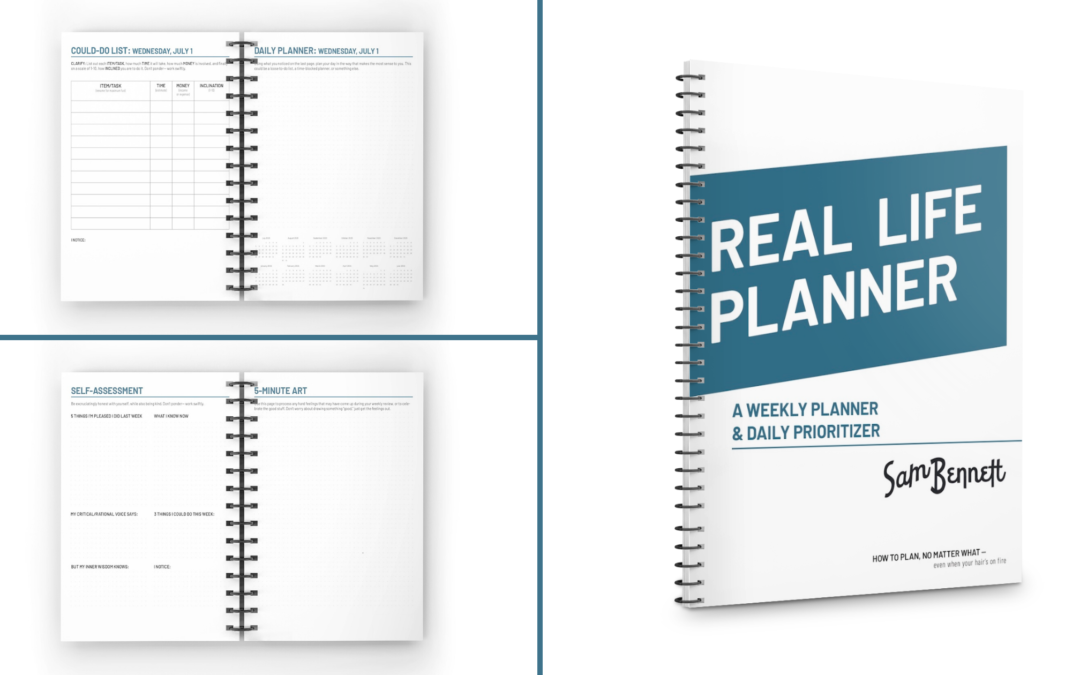
Introducing the Real Life Planner
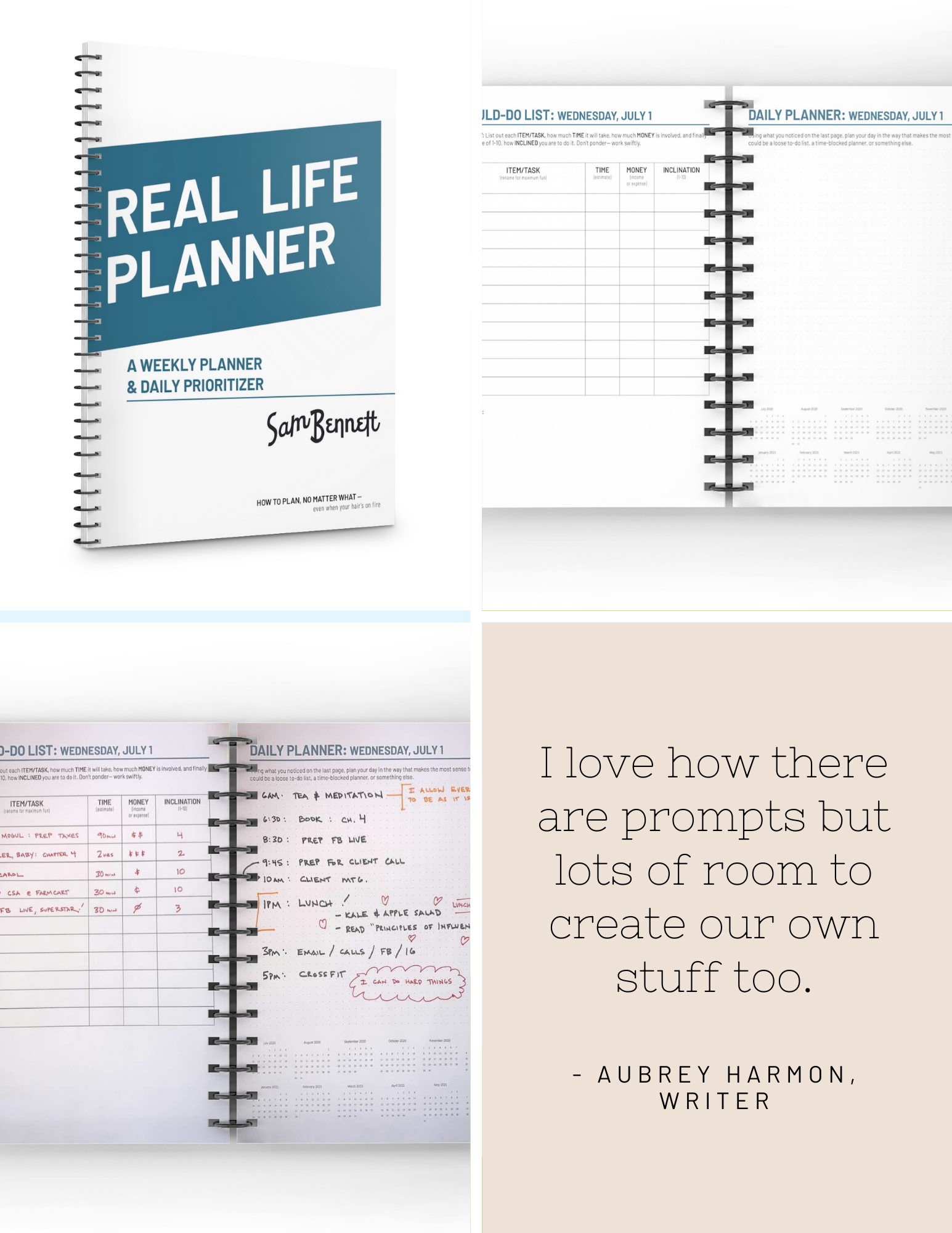
I don’t know about you, but I got tired of having 47 notebooks to keep track of my life.
I had a journal, a gratitude book, prayer work, calendar, to-do lists, online to-do lists, legal pads… it goes on and on. So, my idea was to try and gather the tools that I actually use to organize my actual life and put them all in one place for you.
I designed The Real Life Planner to manage all the things in your life. This is an actual, spiral-bound book that we’ll send to you in the mail.
Let’s talk about the different pages and their sections.
The Could-Do List
First up, The Real Life Planner has a Could-Do list for each day. Those of you that are familiar with my Get It Done method and have read the book or done the program will know all about this.This list is for everything in your life, from calling your best friend to heading to the farmers market.
First, it asks you for the thing you need to do and tells you to rename it. Call it something fun, because sometimes we don’t want to do something because it has a boring name. For example, Project Dinner Party sounds way better than cleaning off the dining room table. Rename your tasks for maximum fun.
The time element is designed to keep you accountable. If you write something down that you cannot assign a time to, then your project is too big. That is one of the main causes for procrastination. For example, if I put down “write book” that seems impossible- who knows how long that will take. But, if I write “revise chapter 4”, that I can do. If you have projects that aren’t getting done, figure out if it’s too big. Ask yourself if you can chunk it down more and assign a time to it.
The time section is also great for when you’re feeling overwhelmed. A long list can seem daunting, but when there’s a time next to it you can see “oh, that’s only going to be 10 minutes and this is 15, that’s 30… I’ve only got 3 hours worth of stuff here and then I can go to the beach.” Another great reason for having the time on there is for when you have a small block of time before a meeting or appointment. You can say “oh hey, here’s this little 10 minute task- I can squeeze that in.” This way you can chip away at your list and get things done.
There’s also a section to note how much money (in or out) applies to each task. Creating an invoice doesn’t sound fun, but when you know you’ll earn $500 from doing it, that sends it straight to the top of the list. If you want to have more money, you’re going to need to pay attention to the money. That’s why the money’s on there.
The inclination section is really important, because it’ll gauge your interest in the task. Give it a scale from 1-10 of how much you want to do it to see the inclination around your desire. We often have to do a lot of stuff we don’t want to do, and that’s where this becomes important. What do we do when there’s no desire around a task we need to do, like bookkeeping? Ask yourself, is there something I can do to jazz up my desire? You can give yourself a treat after, like spend the day in bed reading or get a new pair of sparkly shoes. This is great because you don’t need to pretend that you are dreading this task- you just have to find a way to make it doable for you. This is a reality check around your desire for each task listed.
Daily Planner Page
The Daily Planner page is mostly blank, but it’s got some really helpful little dots instead of the traditional lines or hour-by-hour breakdown. This way, you can use your planner in the way that works for YOU. You can doodle, list out the busiest parts of your day, and remember everything you’ve accomplished throughout the day. For example, I like to do my prayer work in the morning. This puts my prayer work right into my daily planner, so while I am moving through the day, it stays with me- it’s not just some isolated incident that happened at 6am.
Oh, and those dots are perfectly placed at a half-centimeter apart. The level of detail put into this planner is amazing.
Weekly Self Assessment
The other thing that this planner offers is a weekly self assessment. It’s hard for us to discern progress in our life. So, once a week it asks you some questions to do just that. For example, “What are 5 Things You’re Pleased You Did Last Week?” What can you look back on and say “oh yea, I’m proud of myself for that.” It doesn’t have to be complicated. My list included things like family dinner and going to the beach.
Then it’s got a spot for what you’ve learned that week. Tune into the Critical Rational Voice- that voice in your head that is discouraging you. It’s hard, but you don’t have to ignore it. Write down the thoughts and work through them.
Then, what does your Deep Inner Wisdom Know? This isn’t for airy fairy, post it on your mirror, affirmation stuff like Everything’s Fine or I Can Do It! It’s for things you KNOW about your actual life, like “I keep my commitments” or “I think it’s worth a try- I’d rather try than not try.” What do you know about yourself?
Then it asks for 3 things you could do and what you noticed. Mine says “I love my work”, because well… I love my work!
5 Minute Art Page
The last page is to make some 5 minute art about it, or even 90 second art. It’s about getting whatever hard feelings are getting you stuck… things like anger, resentment, grief, extreme self doubt, depression, all of it, out onto the page. You don’t have to be a good drawer- no one is going to see it. It’s just a way for you to process what you’re feeling.
So, that’s the Real Life Planner! It’s designed to have all the things- your home life, work, spiritual… all in one place. The best part is that while it gives you guidance, you’ll have plenty of space to be creative and really make it your own.
Remember, there is not a right way to be creative. There is not a right way to be productive. There’s just your way. And the best news is that you get to do it your way. You’re a grown up now- no one’s grading, no one’s looking… do it your way. And let the Real Life Planner help you keep it organized so you can celebrate yourself, every day.


